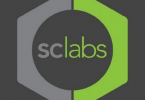I’ll be the first to admit that, up until recently, one of the only times I’d read about the psychedelic substance called ibogaine was in reading Hunter S. Thompson’s Fear and Loathing on the Campaign Trail, where Thompson recounted the “rumor” that 1972 presidential candidate Ed Muskie ingested the substance. “Word leaked out that some of Muskie’s top advisers called in a Brazilian doctor who was said to be treating the candidate with ‘some kind of strange drug’,” Thompson said. [1] (It was Thompson who had leaked that word.)
But that was 48 years ago, and these days psychedelics are no longer negligently shunned or shrugged off as immaterial. Or to be invoked as good rumor fodder during an election.
To learn more about ibogaine and its medicinal potential, I recently spoke with Simeon Schnapper, Managing Partner at JLS Fund, a $50 million plant medicine fund that provides the capital needed for researching the psychedelic substance.
“Ibogaine is an indole alkaloid obtained either by extraction from the iboga plant or by semi-synthesis from the precursor compound voacangine, another plant alkaloid,” Schnapper explained. The iboga plant is in the dogbane family which includes Tabernanthe iboga in West Africa, Voacanga africana in the African tropics, or Tabernaemontana undulata (becchete) in the Amazon rainforest.
Schnapper reported ibogaine’s entheogenic use for ritual and ceremonial purposes, such as by the Bwiti tribe of Gabon, Africa. The root bark of the plant is also used as medicine. “Ibogaine has been known for its healing capabilities since the 1960s,” Schnapper discussed, “which include mental health disorders, fever, influenza, swine flu, high blood pressure, drug abuse, HIV/AIDS, and nerve disorders.”
The JLS Fund
The JLS Fund was created to invest in the crossroads of science, technology, and neurology. They do this by focusing on drug discovery and development, and exploring novel molecules related to plant-based and psychedelic medicines. Understanding the need for being equipped with the right tools for the job, they also invest in innovative software and tools like machine learning and artificial intelligence (AI) that help catalyze the development of those therapies.
“In effect, we want to invest in drug discovery “miners” that create new, more effective therapies to address intractable indications in mental health, including depression and addiction, where the existing therapies generally have limited efficacy and dangerous side effects,” Schnapper discussed. “We also invest in the “picks and shovels” — including advanced machine learning and AI tools that the most intelligent drug developers use to develop better therapies faster and bring them to market at lower costs.”
Schnapper identified several key benefits of these tools, including:
- Streamlining the identification of promising molecules.
- Targeting patients for clinical trials that are more likely to respond positively to a particular therapy, saving time and money.
- Improving diagnostics and identification biomarkers and other indications providing more detail regarding the mechanisms of certain diseases and disorders within our bodies — enabling the development of more effective, targeted therapies.
Transcending Addiction with Ibogaine
Psychedelics have shown major potential in healing addiction and for detoxification, and ibogaine offers a moving example of this phenomenon. [2,3] Interestingly, in an article describing a personal experience, one clinical study participant member who also was trying to stop using heroin reported the vision of “being launched through a worm-hole which spits me out in what looks like outer space”, “broadly contemplating various abstract concepts such as relativity theory, evolution, and photosynthesis”, and feeling a “close connection to memories of my familial ancestors and of various organisms in humanity’s evolutionary past.”
The study participant reported remaining rid of heroin over four years later, attributing his success to just one ibogaine treatment. “Normally, it takes roughly 90 days for an addict to detox,” Schnapper explained. “Ibogaine, on the other hand, can stop acute opiate withdrawal symptoms and detoxify an addict within 24 hours of use.”
Hearing/reading those results is rather stunning, isn’t it? Schnapper pointed to a survey of 88 ibogaine patients conducted at Johns Hopkins University. [2] The survey concluded that 80% of the patients reported fewer or less intense withdrawal symptoms. What’s more, Schnapper says that the penetrating hallucinogenic experience with flashbacks of childhood and momentous experiences of one’s life can allow that person to navigate through the equivalent of several years’ worth of therapy in just 24 hours.
Ibogaine for Mental Conservation
Besides offering hope for those seeking to transcend addiction, psychedelics have demonstrated interesting properties for combating mental conditions like depression. Two 2020 studies highlighted the efficacy of different psychedelics, including ayahuasca, 5-methoxy-N,N-dimethyltryptamine (5-MeO-DMT), lysergic acid diethylamide (LSD), mescaline, Salvia divinorum, or ibogaine for reducing rates in depression severity, suicidal ideation, and experiential avoidance four weeks after taking psychedelics. [4]
Other studies on ibogaine have concurred. [5] “Ibogaine can be very effective against various mental and emotional issues such as depression, anxiety, panic attacks, obsessive compulsive disorder (OCD), social phobia, and post-traumatic stress disorder (PTSD),” Schnapper expanded.
In the light of all those benefits, ibogaine remains illegal, cast off as having zero medical benefits.
“Despite its classification as a Schedule I drug and no approval on its use, people with opioid addiction, depression, or mental health disorders seek out ibogaine because it provides less side effects than other legal drugs in the market right now, like Prozac,” Schnapper concluded.
Nevertheless, ibogaine is currently being evaluated in clinical trials as treatments for alcoholism and methadone detoxification.
Individualized Psychedelic Medicine
Like many things in life, ibogaine treatment may not be for everyone. There are studies indicating cardiotoxicity, for example. [6] This is why entities like JLS Fund are needed — to excavate the details regarding how to safely and effectively dose ibogaine, and to identify areas of healthcare where ibogaine can best be utilized.
“The best results of an iboga therapy come when the participant is committed to the process and prepared to maintain an open mind and heart while focusing on being an active player in their own healing.”
“Everyone’s process can look different,” he continued. “Some may experience an immense amount of progress in a short period of time, while others need more time. No journey with iboga is the same, which is normal and expected. The best way to describe iboga is a “tool” for helping yourself.”
References
- Thompson, H. Fear and Loathing on the Campaign Trail ’72. Straight Arrow Press, 1973.
- Davis AK, Barsuglia JP, Windham-Herman AM, Lynch M, Polanco M. Subjective effectiveness of ibogaine treatment for problematic opioid consumption: Short- and long-term outcomes and current psychological functioning. J Psychedelic Stud. 2017;1(2):65-73. [journal impact factor = N/A; times cited = 11 (Semantic Scholar)]
- Brown TK. Ibogaine in the treatment of substance dependence. Curr Drug Abuse Rev. 2013;6(1):3-16. [journal impact factor = N/A; times cited = 62 (Semantic Scholar)]
- Zeifman RJ, Wagner AC, Watts R, Kettner H, Mertens LJ, Carhart-Harris RL. Post-psychedelic reductions in experiential avoidance are associated with decreases in depression severity and suicidal ideation. Front Psychiatry. 2020;11:782. [journal impact factor = 2.849; times cited = 2 (Semantic Scholar)]
- Rodriguez P, Urbanavicius J, Prieto JP, et al. A single administration of the atypical psychedelic ibogaine or its metabolite noribogaine induces an antidepressant-like effect in rats. ACS Chem Neurosci. 2020;11(11):1661-1672. [journal impact factor = 4.486; times cited = 1 (Semantic Scholar)]
- Koenig X, Hilber K. The anti-addiction drug ibogaine and the heart: a delicate relation. Molecules. 2015;20(2):2208-2228. [journal impact factor = 3.267; times cited = 32 (Semantic Scholar)]









